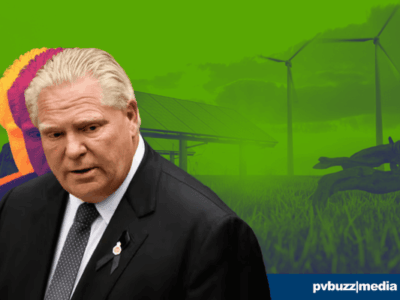The Royal Bank of Canada (RBC) announced plans to significantly increase its renewable energy financing as part of its broader strategy to achieve net zero emissions by 2050.
Canada’s largest bank aims to triple its loans for renewable energy projects to C$15 billion ($11 billion) by 2030, reflecting a growing trend among financial institutions to align their lending practices with global climate goals.
This announcement comes amidst criticism from environmental groups over RBC’s substantial investments in the fossil fuel industry, positioning the bank at the forefront of efforts to support the transition to a sustainable economy.
In addition to enhancing renewable energy lending, RBC has committed to raising its low-carbon energy lending to C$35 billion and allocating C$1 billion by 2030 to support funds and companies aiding clients in achieving their climate objectives.

Burning fossil fuels is relatively cheap until you factor in respiratory disease, floods, lower farm output, and many other effects from the resulting greenhouse gases. That’s why advocates say putting a price on how much carbon dioxide goes into the air is key to climate change action (International Policy Digest)
RBC’s climate strategy includes establishing a new finance category focused on decarbonization to expedite investment in high-emitting sectors’ emissions reduction efforts. Despite these initiatives, a recent report by non-profit InfluenceMap highlighted that Canadian banks have increased their fossil fuel financing, contrasting with trends in U.S. and European banks.
Critics, such as Richard Brooks from the environmental group StandEarth, argue that while RBC’s commitment marks a step in the right direction, it falls short of the transformative change needed to counteract the bank’s ongoing investments in coal, oil, and gas.
The challenge ahead for RBC and its counterparts lies in aligning their financial strategies with the global imperative to limit temperature rises to 1.5 degrees Celsius above preindustrial levels, a goal set by the 2015 Paris Agreement on climate change.
RBC’s initiative reflects a growing recognition within the financial sector of the critical role it plays in facilitating the transition to a low-carbon economy. By increasing investments in renewable energy and supporting clients in reducing emissions, RBC aims to contribute to the collective effort to combat climate change.
However, the effectiveness of these measures and their impact on the bank’s fossil fuel financing will be closely watched by environmental advocates and stakeholders in the years to come.













Comments